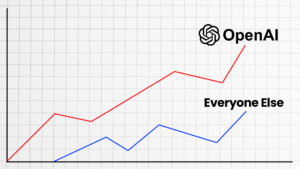In today’s digital age, companies are constantly seeking innovative ways to enhance customer experiences. One technology that has emerged as a game-changer in this regard is Artificial Intelligence (AI). AI is not only revolutionizing industries but also reshaping customer interactions with businesses. In this article, we will explore the various use cases of AI in customer-facing situations, going beyond chatbots, and delve into how AI is transforming customer experiences across industries.
Chatbots: Elevating the Customer Experience
Let’s start with chatbots, as they have become synonymous with AI-driven customer interactions. Chatbots are AI-powered virtual assistants that engage with customers in real-time, providing instant responses to queries and assisting with tasks. They are available 24/7, offering a seamless customer service experience.
Chatbots can be customized to suit different industries. For instance, in e-commerce, chatbots help customers find products, track orders, and even provide personalized product recommendations. In healthcare, they assist with appointment scheduling and answer basic medical queries. Chatbots are versatile and can significantly reduce response times, improving the overall customer experience.
Personalized Recommendations: Tailoring Customer Experiences
AI algorithms analyze vast amounts of data to understand customer preferences, enabling companies to offer personalized recommendations. This is evident in platforms like Netflix and Amazon, where AI algorithms suggest movies or products based on a user’s previous choices. This not only increases sales but also enhances the overall customer experience.
Moreover, AI-powered recommendation engines can be applied in various domains. In the hospitality industry, AI can suggest personalized travel itineraries based on user preferences. In the finance sector, it can offer investment advice tailored to an individual’s financial goals. These recommendations demonstrate the power of AI in understanding and catering to customer needs, ultimately improving the customer experience.
Virtual Personal Shoppers: Redefining Customer Engagement
AI-driven virtual personal shoppers are transforming the retail industry. These virtual assistants use AI to guide customers through their shopping journey, offering style advice, product recommendations, and even helping with sizing and fit. They create a personalized shopping experience akin to having an expert in-store.
Virtual personal shoppers can be particularly beneficial for e-commerce businesses, as they reduce cart abandonment rates and increase sales. They enhance the customer’s shopping experience by providing valuable insights and guidance, making the process more enjoyable and efficient.
Voice Assistants: Shaping the Future of Customer Interaction
Voice assistants like Siri, Alexa, and Google Assistant are becoming increasingly integrated into our daily lives. These AI-powered voice interfaces have found their way into customer-facing scenarios, offering a hands-free and natural way for customers to interact with devices and services.
In the hospitality industry, voice assistants in hotel rooms allow guests to control room settings, request services, and even order room service through voice commands. In the automotive sector, AI-powered voice assistants provide in-car navigation, entertainment, and safety features. These applications showcase how AI is making customer interactions more convenient and efficient, ultimately enhancing the customer experience.
AI-Powered Content Personalization: Customer-Centric Engagement
Content is a critical component of customer engagement, and AI is being used to tailor content to individual preferences. For example, news websites use AI algorithms to recommend articles based on a user’s reading history. Email marketing campaigns can be enhanced with AI-driven content recommendations, increasing open and click-through rates.
In the education sector, AI-driven content personalization is transforming online learning. Platforms like Coursera and edX use AI to suggest courses and resources that match a learner’s goals and interests. This ensures that learners receive a personalized and effective learning experience, further underscoring the importance of AI in shaping the customer experience.
Conclusion
Artificial Intelligence has emerged as a driving force in transforming customer experiences across various industries. From chatbots providing instant assistance to virtual personal shoppers revolutionizing the retail experience, and from personalized recommendations enhancing sales to voice assistants simplifying interactions, AI is reshaping the way businesses engage with their customers.
At Epimax we understand the importance of leveraging AI to enhance customer-facing scenarios. By adopting AI-driven solutions, companies can stay ahead in the competitive landscape and provide exceptional customer experiences. As businesses continue to explore the endless possibilities of AI, one thing is clear: the customer experience of the future will be significantly different, more personalized, and more engaging thanks to the power of AI.
Follow us on social media for more insight into how AI is shaping business.














